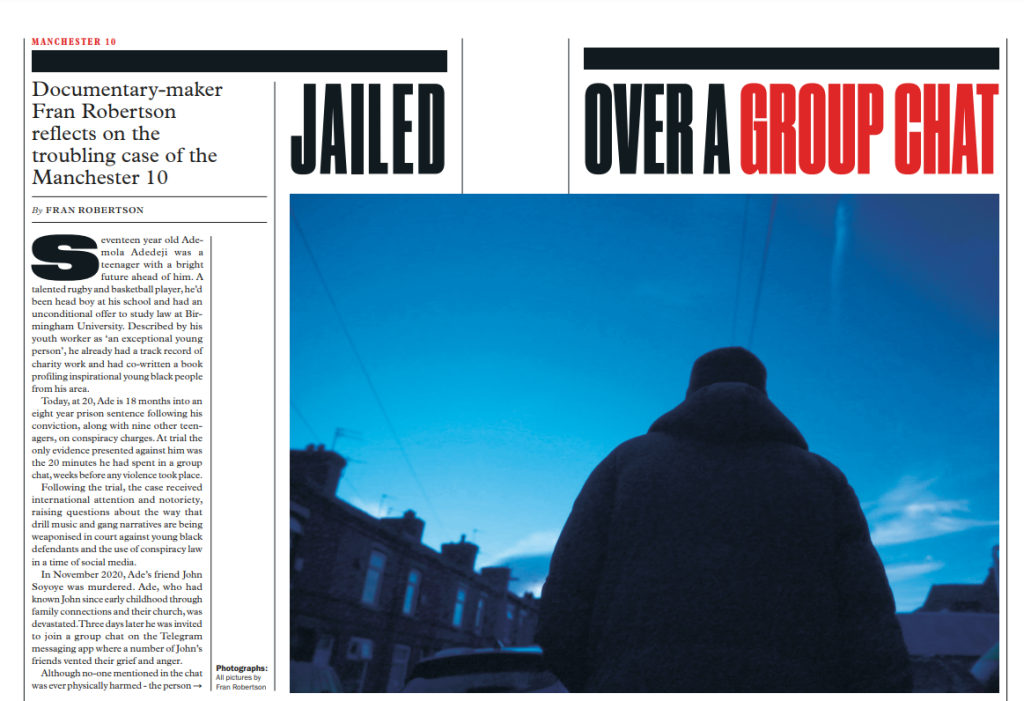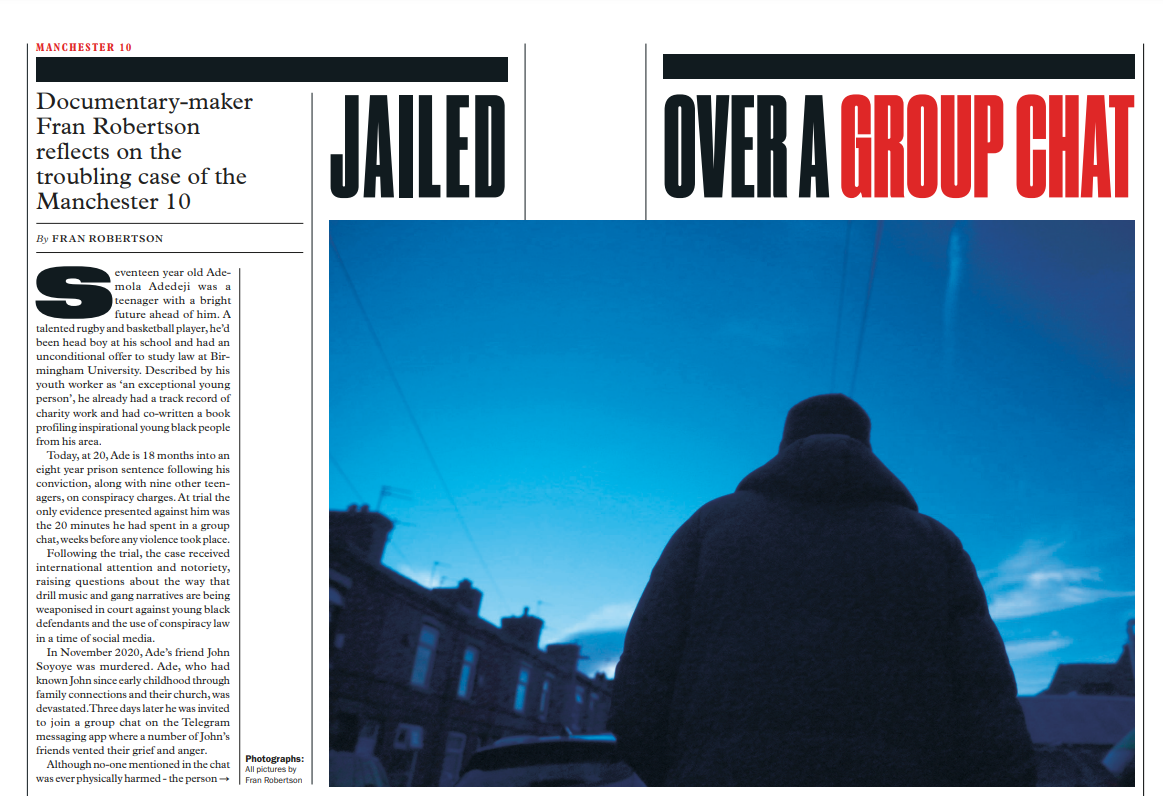From the latest issue of PROOF magazine, documentary-maker Fran Robertson reflects on the troubling case of the Manchester 10.
Seventeen year old Ade-mola Adedeji was a teenager with a bright future ahead of him. A talented rugby and basketball player, he’d been head boy at his school and had an unconditional offer to study law at Birmingham University. Described by his youth worker as ‘an exceptional young person’, he already had a track record of charity work and had co-written a book profiling inspirational young black people
from his area.
Today, at 20, Ade is 18 months into an eight year prison sentence following his conviction, along with nine other teenagers, on conspiracy charges. At trial the only evidence presented against him was the 20 minutes he had spent in a group chat, weeks before any violence took place. Following the trial, the case received international attention and notoriety, raising questions about the way that drill music and gang narratives are being weaponised in court against young black defendants and the use of conspiracy law in a time of social media.
In November 2020, Ade’s friend John Soyoye was murdered. Ade, who had known John since early childhood through family connections and their church, was devastated. Three days later he was invited to join a group chat on the Telegram messaging app where a number of John’s friends vented their grief and anger. Although no-one mentioned in the chat was ever physically harmed – the person who set up the group chat went on to be involved in what the prosecution described as ‘revenge attacks’. His arrest led to the arrests of all those who had taken part in the Telegram chat, including Ade.
In his police interview in April 2021, Ade gave a full account of his actions – and described the grief he had been feeling at the time. He told the police: ‘It was just out of emotions… you have to understand, that’s someone I grew up with, someone who I saw a future with, we had plans together and his life just got cut short and it’s taken away from him, just like that.’
In March 2022, Ade along with nine other teenagers went on trial charged with conspiracy to murder and conspiracy to cause grievous bodily harm. The prosecution told the court that, although no murder had taken place, all the defendants were part of a violent, brutal gang who had conspired together to avenge their friend’s death. Alongside the group chat, their friendships and shared interests were used as evidence of gang membership. Drill music formed a large part of the case against them – with lyrics and videos found on their phones presented to a mainly white jury as evidence of violent intent.
Ade was active in the group chat for twenty minutes and sent only 11 of the 345 messages. One of these was the postcode of someone thought to have been involved in John’s murder. Although no-one at the address was harmed, the prosecution argued that this showed that he had shared information in the conspiracy. At the end of the trial four defendants were found guilty of conspiracy to murder and six guilty of conspiracy to cause grievous bodily harm. Ade and his three friends whose only involvement had been in the group chat were given eight year sentences.
Read the full article here, or by clicking below.








